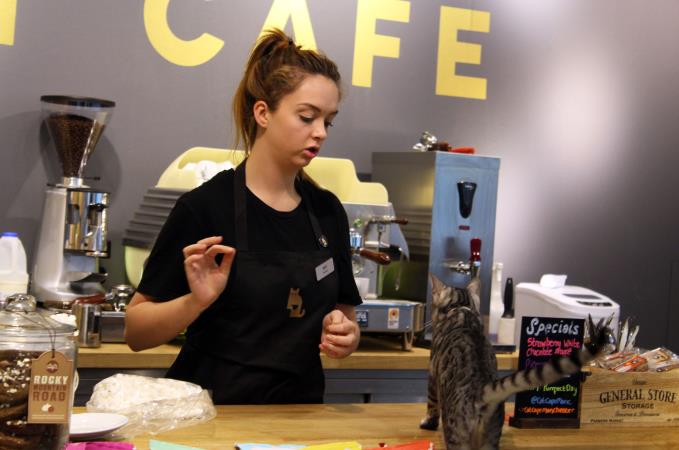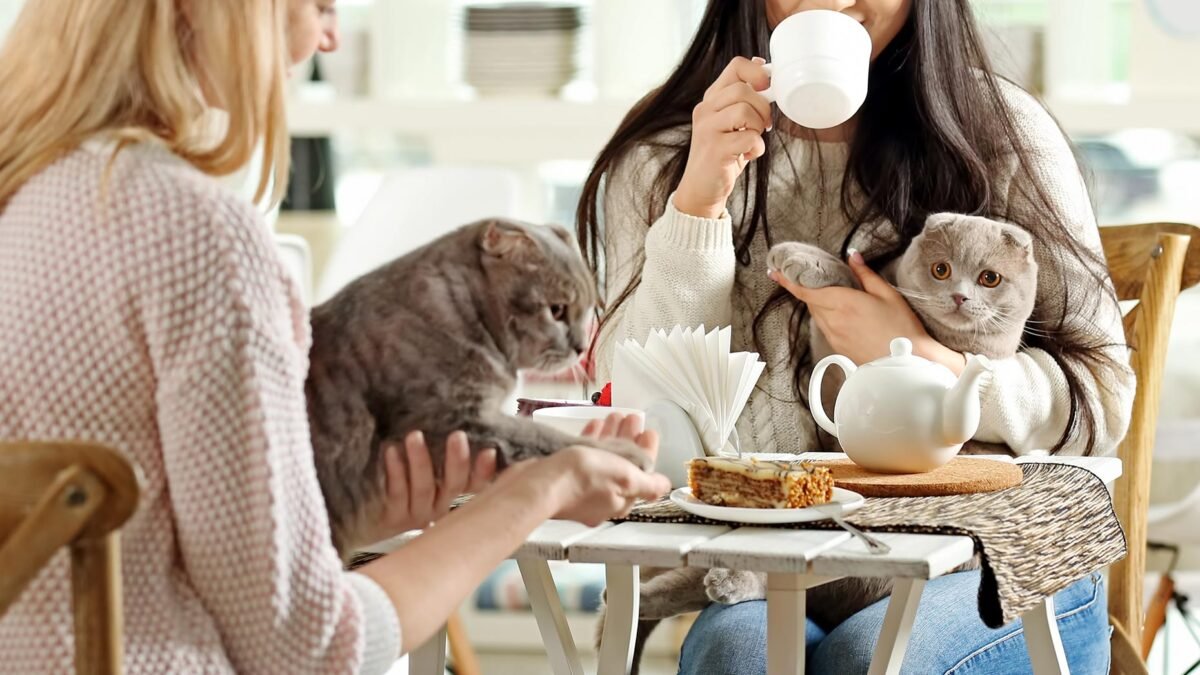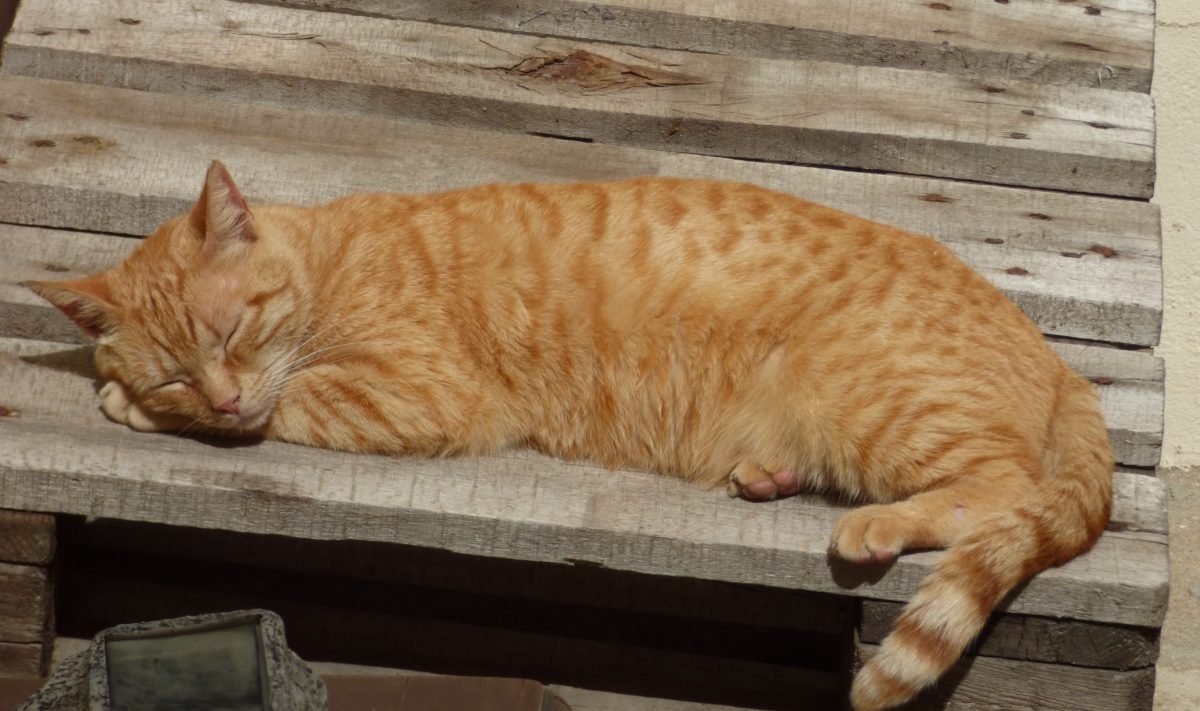The interests of the cats can be lost sight of particularly when things go wrong.
A UK cat café in Manchester, where customers pay £12 ($15) to spend an hour in the company of cats with a cup of coffee provided, is closing after nearly five years due to the economic situation. Their self proclaimed “cat family” of a dozen or so cats are to be found new homes. They also have another branch in Liverpool which is also closed, which probably ends their initial aim of opening one in every major city in the UK.
Since the first cat café opened in Taiwan in 1998 there has been an explosion of these feline themed eateries worldwide with dozens opening across the UK annually with little or no inspection. Many of these have the same vision of establishing chains of stores across the country. They have become a popular craze and sadly there are even help sites with tips on how to start a cat café. These promote the benefits of partnering a business with local cat rescues to “populate” the café with the required 10-15 cats to make it successful and many cat rescues questionable appear happy to oblige. Anyone can operate one without experience which can lead to hygiene and welfare issues.

Good therapy for humans or just good business.
Most cat cafes promote themselves either as providing “a stress free haven where cats and humans can unwind” or as pseudo cat rescue centres or both. This causes a conundrum for many people as to whether they are cruel and stressful for the cats and unhygienic or a benefit to human mental health and a cat’s Shangri-La of human company. The veterinary profession appears non-committal on the issue as long as cats are well cared for, while some animal welfare charities like the Cats Protection are positively against them and will not accept donations from them. The law has no problem with dogs and cats in cafes as long as they are not allowed near food preparation and food standards inspectors can take years to inspect and give them hygiene star ratings which can be a problem.
“If the intention is to home cats from the café, this would create a ‘rolling’ population of rescue cats – in a café, this would create even more stress and further compromise feline welfare because rescue cats need as stable an environment as possible & will become stressed as a result of being in a confined space with a continually changing group of people”.
Cats Protection, UK national cat charity.
In the case of the Manchester café, the owners are happy to claim on their website that “the café is their home” and that they are their “cat family” and yet the redundant cats are all to be found new homes. They were originally sourced from breeders and some from cat rescues to provide “forever homes” to those that could not find the home they deserved which are now hollow sounding sentiments, which is often the case with the use of the term “forever”.
Plans to open a new cafe
Worryingly the owners of the Manchester café are quoted as saying they hope to open another café with new cats when the pandemic and economic outlook is better. There seems to be no interest in caring for the cats themselves or mention of any contingency plan or fund in place to look after them. The cats appear to be viewed as stock or accessories for the business rather than their pampered cat family.
“We hope to relaunch in a new premises once the pandemic is over, so please continue to bear with us through this very difficult time. We will be spending the next few weeks finding loving, permanent homes for our 10 resident cats”.
Manchester Cat Cafe
There has been outrage in the past about animal cafes particularly those in Japan and Asia where cats and exotic animals of all kinds such as otters, hedgehogs and monkeys are used to attract customers, but hypocritically we are happy to patronise similar establishments in the UK. It is the same type of exploitation of animals regardless of the type of animal and all the animal welfare and psychological hyperbole behind these ventures.
Cat cafes are becoming big business but as with all ventures involving the participation of animal attractions, the interests of the animals can be lost sight of particularly when things go wrong. Those in existence already involve the lives of hundreds of cats and the number at risk only increases whenever another opens. In these uncertain times the Manchester closure highlights the uncertain future of cats in this type of establishment.

